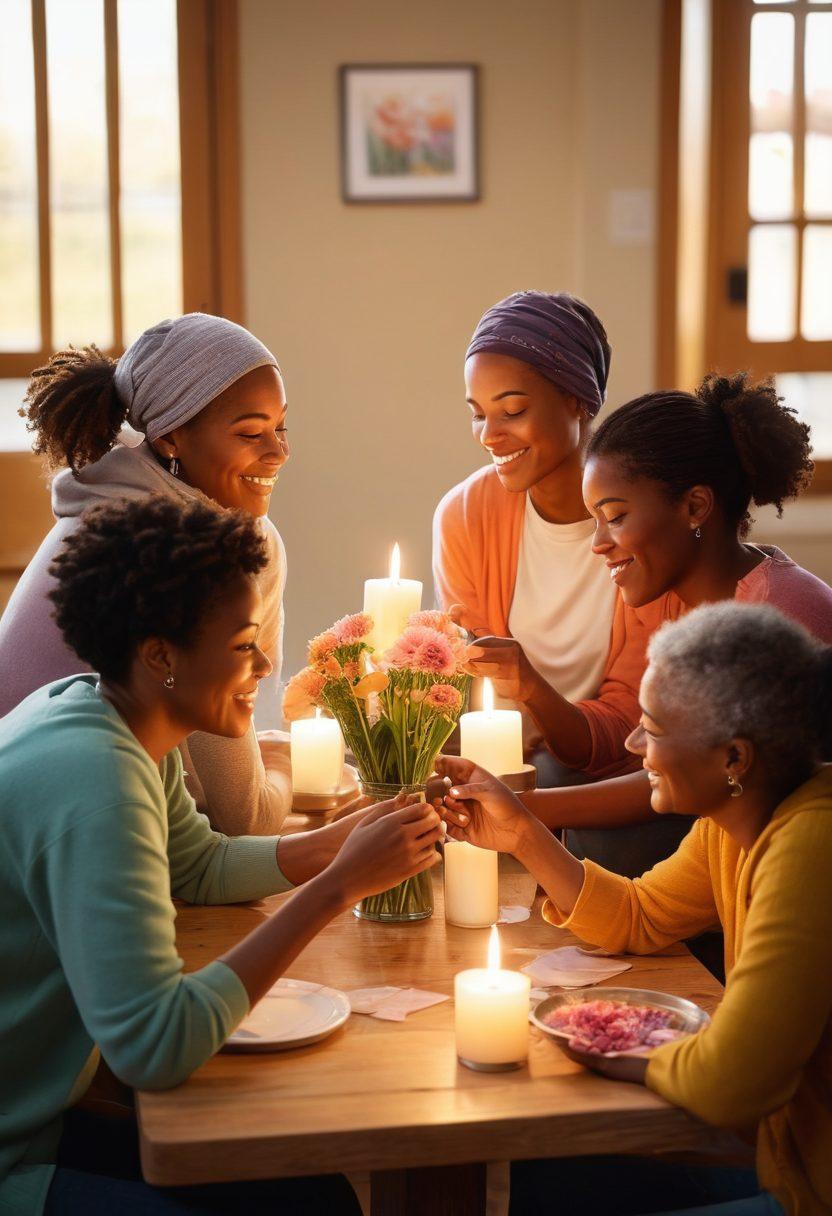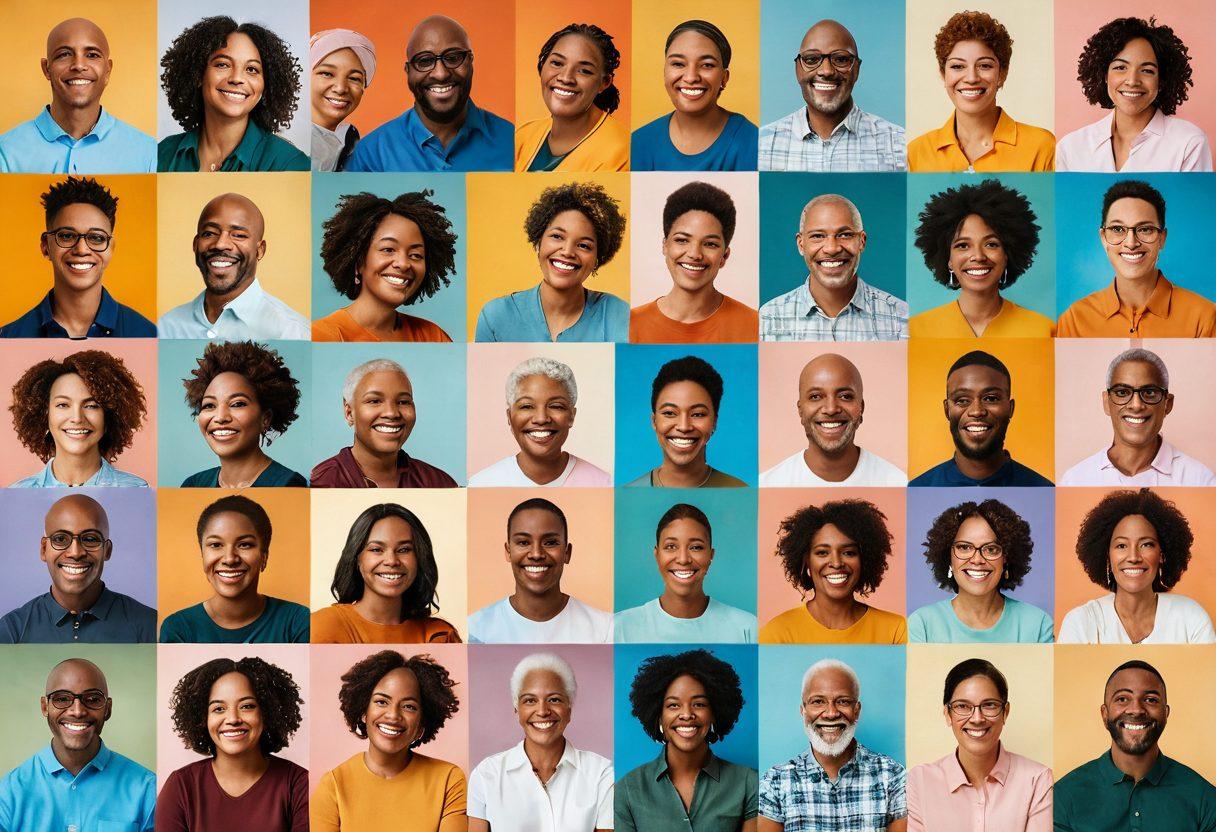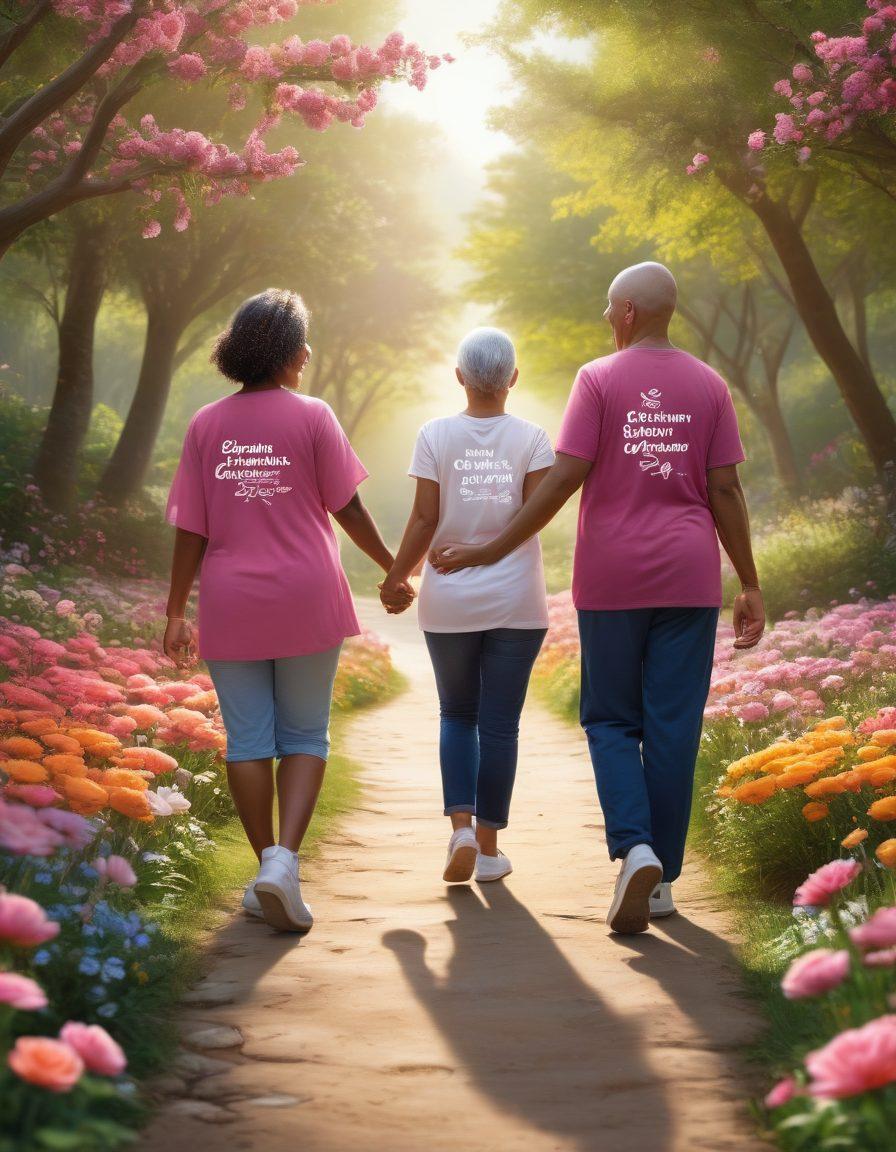Empowering Lives: Navigating Cancer Treatment and Wellness Through Community Support
When facing the diagnosis of a malignancy, life can feel like a sudden plunge into uncharted waters. Amid the tidal waves of uncertainty, one thing remains steadfast: the power of community. It's the human connections that can guide us through the labyrinth of oncology, offering not just patient support but also hope and strength. Whether a caregiver, a patient, or a friend, each role contributes to a broader landscape where cancer treatment and wellness thrive with collaboration and understanding. So, how does community play a critical role in cancer therapy and recovery?
In the realm of healthcare, the collective fight against carcinoma and neoplasm is made potent through shared experiences and communal support. Picture a support group where personal stories intertwine; each patient story is a thread weaving a rich tapestry of resilience and bravery. These meetings don’t just provide emotional support; they are fertile ground for ideas about wellness strategies, lifestyle changes, and therapeutic options. By exchanging knowledge about the side effects of different therapies or the best preventative measures, members engage in a form of peer-led health education that echoes well beyond the confines of clinical settings.
Engagement within a community can spark hope, especially when it comes to understanding cancer and the many facets of treatment options available. A medical blog might discuss the latest clinical research or screening alternatives, yet it is the conversation at coffee shops or online forums that can unearth gems of wisdom about everyday coping strategies. Have you ever wondered how simple lifestyle changes could facilitate your journey to remission? Or how a shared laugh with someone who understands the struggle could make the day a little bit brighter?
Moreover, looking at the bigger picture, community support extends into health awareness campaigns that emphasize early detection and education about various tumors. When communities band together to advocate for screening programs, they shine a spotlight on disease awareness that can illuminate pathways to earlier intervention. Isn’t it fascinating to think that a local community health event can sway the trajectory of someone’s cancer journey? This ripple effect serves as a powerful reminder that tackling significant health challenges doesn’t have to be solitary; instead, it can be an ensemble of unified voices.
So, whether you're navigating the turbulence of treatment options, attending a community health forum, or finding a friend who truly gets it, remember: each moment spent in community strengthens the fabric of cancer care. It’s where hope flourishes, and mental health finds its anchor. We encourage you to lean on this essential network, explore cancer treatment options together, and illuminate the path not just for yourself, but for others who tread a similar journey. Community isn't just a word; it's a lifeline in the fight against cancer.
Empowered Together: Personal Stories of Triumph Over Tumor Challenges
In the kaleidoscope of life, each twist and turn can bring unexpected challenges. For many, hearing the word 'tumor' can feel like a dark cloud gathering overhead. But as we dive into the personal stories of empowerment in the face of malignancy, we find that there is more light than dark. Patients and caregivers alike often share tales of resilience that showcase not only the struggle against carcinoma but the incredible triumphs that emerge from the fight. How do these stories shape our understanding of oncological care and the power of community support?
Meet Sarah, a vibrant artist whose world was turned upside down when she was diagnosed with breast carcinoma. Her initial reaction was one of shock and fear; like many, she thought of the treatment options available and the daunting task of navigating the oncology landscape. However, it was through her local support group that she discovered not just therapies to fight her malignancy, but a network of individuals who transformed the journey from solitude to solidarity. "I found solace in shared experiences," Sarah shares, highlighting how embracing community support led her to wellness and allowed her to focus on lifestyle changes that enhanced her quality of life during treatment.
Peter’s journey echoes the importance of early detection and the role it plays in outcomes. Initially dismissing his unusual symptoms, he chose to prioritize screenings after a strong recommendation from a community health education event. His early diagnosis of a neuroendocrine neoplasm changed the trajectory of his cancer care dramatically. "I learned that understanding cancer and being proactive can be life-saving," he explains. His story encourages the reader to engage in disease awareness and preventative measures—a call to action for anyone hesitant about their health.
The emotional toll that comes with a diagnosis, the side effects of treatment, and the constant juggling of mental health are all part of the cancer memoir that weaves through our communities. It is essential to shine a light on caregiver support, as their roles often go unacknowledged. Take the story of Maria, who was her partner's steadfast supporter. Much like the individuals she supported, she faced her own battles with anxiety and despair, yet through community resources, she discovered self-care practices that fortified her spirit. "It’s okay to ask for help, even if you are ‘the strong one’,” she says, reminding us that strength can lie in vulnerability.
As we gather these patient stories of resilience and survival, one thing becomes crystal clear: the power of connection can supersede even the most daunting challenges of cancer treatment. The journey is not merely about researching clinical trials or assessing cancer treatment options; it is also about the relationships built along the way. From local support groups to digital platforms, staying engaged with like-minded individuals can bolster one's journey to remission and inspire new avenues of healing. So, how can you support someone navigating their cancer journey? Whether it's through volunteering, sharing resources, or simply being a listening ear, remember that empowered together, we rise stronger.
From Awareness to Action: Navigating Your Cancer Journey with Collective Strength
Cancer is a word that evokes fear, uncertainty, and sometimes a feeling of helplessness. But what if I told you that it can also be an opportunity for empowerment and collective strength? With the right community support, navigating your cancer journey can transform from a daunting challenge into a path illuminated by resilience and hope. Discussions around oncology often revolve around the terminology: malignancy, tumor, carcinoma. Yet underneath these clinical terms lies the heartwarming reality of patient stories that inspire and uplift. In this blog, we will explore how community support can turn awareness into action in the fight against cancer.
Did you know that awareness is just the first step in a much bigger journey? Disease awareness gives us the language to discuss cancer. It educates us about different cancer treatment options, preventative measures, and the importance of early detection through screening. Understanding cancer means comprehending not just the science but also the emotional landscape navigating a diagnosis creates. Engaging with survivor networks, local healthcare events, and medical blogs can light the way for newly diagnosed patients, helping them to feel less isolated in their journey towards remission.
"No one fights alone." This powerful quote illustrates the essence of being part of a community while battling cancer. Here’s the thing: Whether you’re dealing with the effects of therapies or navigating side effects, having a support system can make all the difference. Caregiver support too plays an essential role – they are often the unsung heroes in the background, providing encouragement, love, and helping manage day-to-day challenges. Reaching out to organizations focused on cancer care can connect you with others who share similar experiences, creating a network where everyone learns from each other’s stories and strategies for wellness.
Moreover, the emphasis on lifestyle changes cannot be overstated. Research in clinical studies shows a direct correlation between mental health and cancer recovery. Incorporating wellness practices like mindfulness, diet modifications, and regular exercise can mitigate the toll of the disease and treatment. Not only can making these lifestyle changes promote physical health, but they also reframe your mind for a more positive outlook. It’s all about making proactive decisions that lead to healthier living – and the community can provide the right support and resources to aid you along the way, turning healthy choices into lifelong habits.
As we wrap this up, remember this: navigating cancer is not just about the strategies to treat neoplasms or the next best therapies; it’s also about embracing the journey with others. From patient support groups to sharing information on health education, connecting with others can create a safety net that catches you when you fall. If you or someone you know is grappling with cancer, take that crucial step. Seek out community support, open the lines of communication, and step into a network where many have walked the same path. Ask yourself: How can your story inspire others? Together, with awareness transforming into action, we can shine a light on the darkness of cancer.


